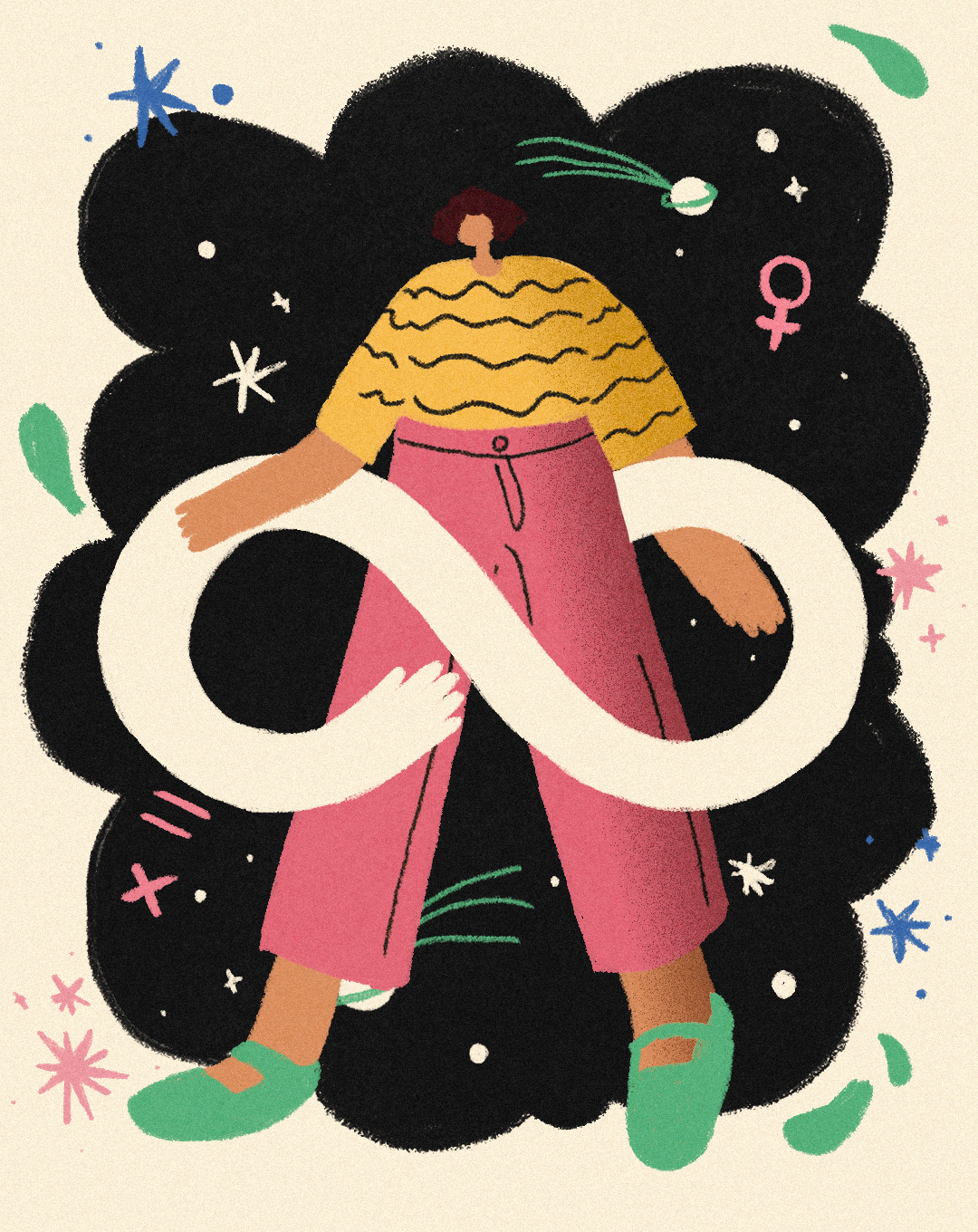Where Autism and Feminism Intersect
Make it stand out
Autism has a gendered bias: Support and diagnosis is angled towards cisgendered boys and men who present traditional behaviours and traits typically associated with cognitive difference. There’s a historic understanding of autism as overt and explicit, with a narrow range of attributes and actions that imitate stereotypes. Assumptions all too often rest on the expectation of a special interest in trains, ear defenders, and no eye contact, all contributing to a profile of autism that doesn’t always apply.
In reality, there are a wide range of behaviours and experiences that align with neurodiversity. We are complex, nuanced, and span an ambit of insight and lived experience. Our awareness is beginning to change - in recognising the less conventional behaviours that indicate autism and neurodiverse conditions, we are beginning to provide new avenues into balanced and accessible support for all genders. Women, non-binary people, and those from marginalised communities are routinely dismissed, erased, and excluded from the autistic narrative. Facilitating space for dialogue and discussion around the disconnect between presentation and experience is a crucial next step for recognition, support, and safety for the wider autistic community.
I hold my feminism in parallel to my autism. Feminism is perpetually analysed and criticised, our views are put on trial and interrogated, our statements examined and scrutinised. I face a similar inquisition when I disclose my diagnosis. Most of the time I “pass” as neurotypical and all too often face judgement and disbelief as someone who isn’t straightforwardly read as autistic.
___STEADY_PAYWALL___
There is immense privilege in “passing” as neurotypical, and the intricacies surrounding choice of disclosure have a profound influence on my outlook. I use anonymity to protect my peace and distance myself from my identity which leaves me confronted with a complicated set of truths and troubles. I am painted as an “interesting” or “unusual” case study. I am not someone else’s think-piece, or thought experiment, my identity is not something to be questioned or queried. It is non-negotiable. This is the same for my feminism. The inequalities we face are objective and not up for discussion. Our struggle is not only locked in anecdotes - it is documented and indisputable. We have the statistics to hand and the understanding to back it up, and even if we didn’t, we are the experts in our own lived experience. Trust it.
The prejudices I face are bound up in my autism. I can’t separate my gender from my race or neurodiversity, and my feminism follows form, building a compounded and intersectional approach to resistance.
I experience autism as a condition, not a disorder. It is both an asset and at times a wholly insurmountable challenge. It remains true that ableism and inaccessibility provide the limits, not my symptoms, behaviours, or actions. The structures at play build a system that gatekeeps spaces of influence and withholds access to those who hold control, the glass ceiling acting as a magnifying glass over institutions and individuals that build barriers and burn bridges.
As an autist who takes phrases literally, it took me a long time to stop looking “up” at a ceiling that wasn’t physically there, instead of looking “across” at my autistic siblings who share my outlook, add to my output, and improve my outcomes. Autism is practical and pragmatic, it manages my day-to-day and governs my decisions, I am fixed but secure, anchored in a dependable bubble of repetition and routine.
Make no mistake, feminism is not a “condition” - it isn’t “diagnosed” and doesn’t trigger physical or mental distress. Instead it acts as a set of steadfast values, principles, and theories, and is often linked to occupying a marginalised gender or identity. This source of solidarity and community returns to a concept of shared lived experience. I find solace in the company of my autistic siblings and the power that resides in our (often very rigid) spaces. I have found that those that share a similarly compounded identity involving race, gender, and neurodiversity to me develop a resistance rooted in unwavering beliefs, and firm foundations. I won’t change my plans or my principles.
And yet so much of feminism is based in change, flux, and nuance. My views evolve and shift, my perspective alters, my outlook is constantly adjusting through a new lens of feminism. Change is challenging, and yet it often needs to happen for there to be progress, political or otherwise.
“The general reception of autism is one of disruption and inflexibility, two facets of feminism we uphold and admire. To be steadfast is to be strong, empowered, and balanced, to interrupt the status quo and to challenge the system. “
I was diagnosed in my early twenties, two decades after my hard and fast rituals and routines established themselves in my day to day. I was brought up with negotiation and compromise, a household of accommodations and reasonable adjustments that leaked their way into my adolescent perspective. I am accepting and palatable, I stomach change outwardly and deal with the internal consequences later. This takes its toll, as I think it does for many feminists and fellow autists. We shift our behaviours to please the patriarchy and absolve our guilt of conforming to expectations and demands. It’s often the easiest option. It’s encouraged and it’s praised. The alternative is anger and agitation, a natural response rooted in the resistance shared by autism and feminism. I choose both.
Words: Mette | Illustrations: Sage Anifowoshe


